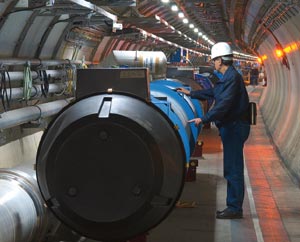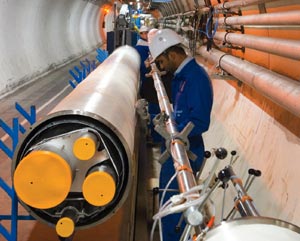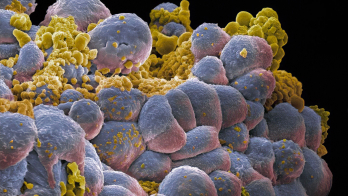First collisions in the Large Hadron Collider (LHC) will occur in November 2007, LHC project leader Lyn Evans told the 137th meeting of the CERN Council on 23 June. A two month run in 2007, with beams colliding at an energy of 0.9 TeV, will give the accelerator and detector teams the opportunity to run-in their equipment, ready for a run at the full collision energy of 14 TeV to start in Spring 2008.

The schedule announced to the Council ensures the fastest route to a high-energy physics run with substantial quantities of data in 2008, while optimizing the commissioning schedules for the accelerator and the detectors that will study the particle collisions. It foresees closing the 7 km ring of the LHC in August 2007 for equipment commissioning. Two months of running will start the following November, allowing the accelerator and detector teams to test their equipment with low-energy beams. After a winter shutdown, during which commissioning will continue without beam, the full-energy run will begin. Data collection will then continue until a predetermined amount of data has been accumulated, allowing the experimental collaborations to announce their first results.

Progress with the LHC project is being closely followed by a machine advisory committee composed of experts from around the world. This committee believes that “experience indicates that [the proposed schedule] is the most efficient way to get to high-energy, high-luminosity operation at the earliest date”.
Meanwhile, installation of the LHC accelerator has reached full speed, and all of the industrial procurement projects are coming to a conclusion. The last magnet for the LHC will be delivered to CERN in October 2006 and magnet testing will conclude by December. The last magnet will be installed in the LHC ring in March 2007, after which the machine will be closed ready for commissioning in August, with first collisions scheduled for November.
At the meeting the Council also unanimously approved a preliminary draft budget for 2007 and took note of projections for 2008-2012, with no new initiatives in the scientific programme. However, this exercise is continuing in parallel with the definition of a European strategy for particle physics. If approved by the Council at its meeting in Lisbon on 14 July, this strategy will have financial implications and will require new resources, which will have to be taken into account when the medium-term plan for CERN is discussed later this year.








